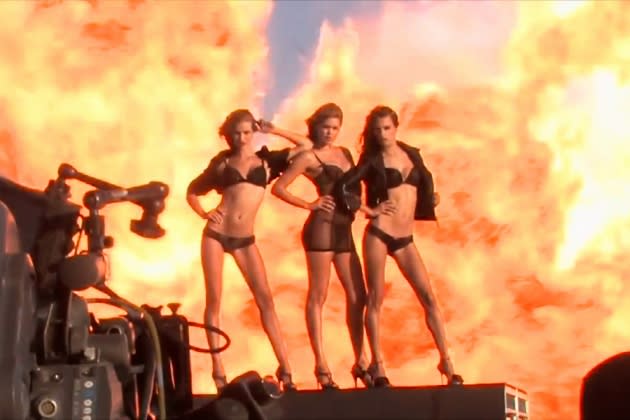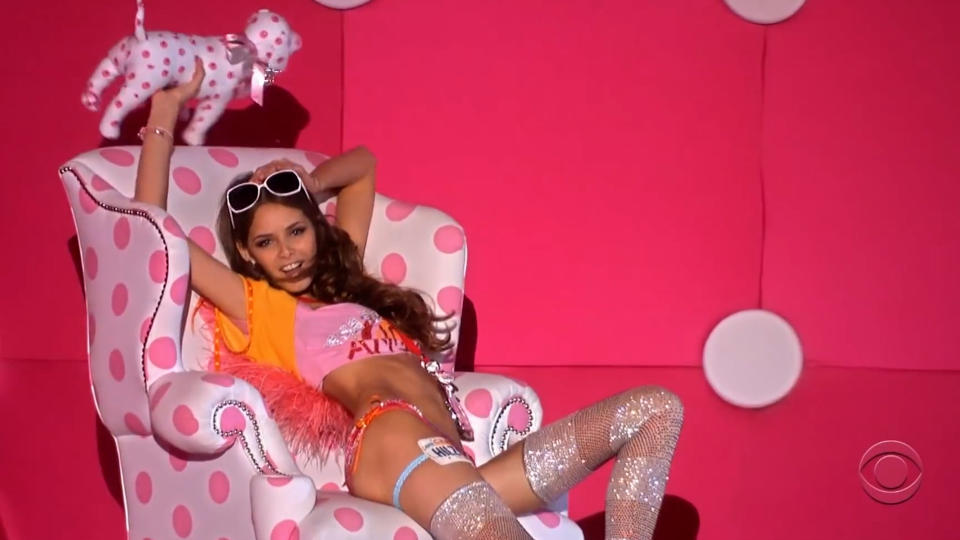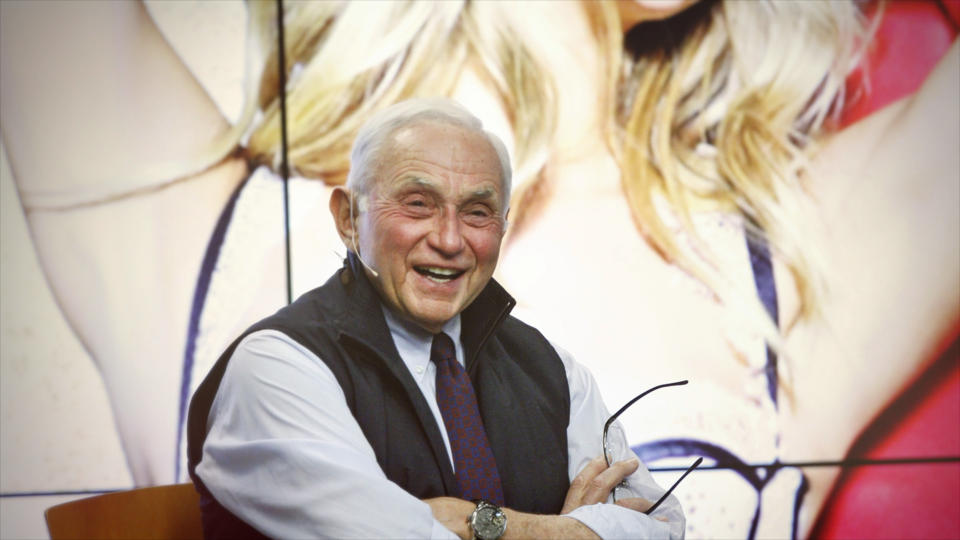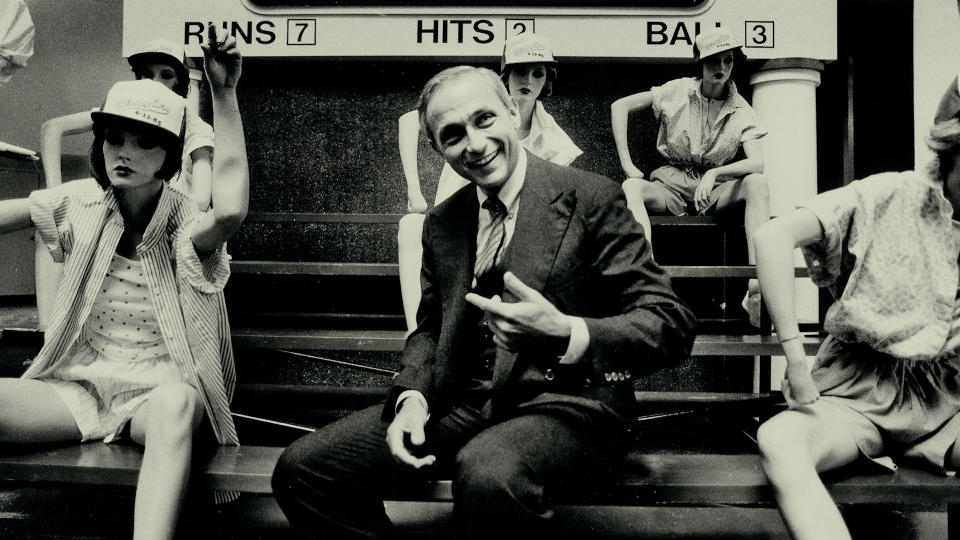Hulu’s ‘Victoria’s Secret: Angels and Demons’ Explores Relationship Between Fashion, Power and Influence

Victoria’s Secret’s downfall and subsequent transformation have been well-documented by a number of media outlets over the last few years.
Matt Tyrnauer’s much-anticipated docuseries titled “Victoria’s Secret: Angels and Demons” — which premieres July 14 on Hulu — is no different, chronicling, among other things, the “mysterious relationship” between former parent company L Brands founder Leslie H. Wexner and financier and convicted sex offender Jeffrey Epstein; Victoria’s Secret’s corporate culture, and the forces that allowed the retailer to carve out such a large slice of the U.S. lingerie market (and then proceed to lose some of it) in the wake of a massive cultural shift.
More from WWD

Courtesy Photo Hulu
What the Hulu series effectively will do is make the story more widely known by way of the streaming platform while director Tyrnauer — whose other films include “Valentino: The Last Emperor” and “Studio 54” — explores a number of overarching themes about power, influence and the role fashion plays in our everyday lives.
“It’s a very complex story that’s about not only fashion but the world of power and influence and what I like to call the fashion industrial complex,” Tyrnauer told WWD. “It’s about the design [of the] era: the world of design and marketing, fast-fashion, but also the people behind it and the power and influence that they wielded. So it’s a story of fashion, power, influence and the [company’s] culture. Since a lot of my films are about power and influence in the way that certain people manipulate the various power structures, this became interesting to me.”

Courtesy Photo Hulu
The three-part series gives viewers what the director calls “an inside look into a secret world…and the kind of broken culture within the brand” by way of numerous interviews. The list includes former Victoria’s Secret models, such as ’80s supermodel Frederique van der Wal, also known just as Frederique, one of the original Angels; Lyndsey Scott and Dorothea Barth-Jorgensen, former runway model at Victoria’s Secret’s sister brand Pink; as well as old interview and marketing footage of Angels, including a much younger Naomi Campbell talking to the camera.
“I told my modeling agency to call Victoria’s Secret, because they put girls on the map,” Campbell says in the clip.
The docuseries also includes internal Limited Brands videos (Limited Brands owned Victoria’s Secret before it spun off into L Brands, and then later Victoria’s Secret & Co.), such as a 2008 video with Wexner saying, “Creating a brand is making a movie,” and weighs in on the complicated relationship Wexner had with his parents, as well as Epstein, and how that helped shape the retail mogul who dominated the industry for decades.

Courtesy Photo
Wexner declined to be interviewed for the film, but did answer written questions by way of a spokesperson, according to Tyrnauer. Also missing from the documentary were the high-profile models, such as Gisele Bündchen, Adriana Lima, Heidi Klum and the Hadid sisters, all of whom became household names in part because of the annual fashion show.
Tyrnauer and his team did, however, snag new interviews with former members of the Victoria’s Secret PR team; former Victoria’s Secret Direct chief executive officers Mindy Meads and Cindy Fields; cofounder and co-CEO of innerwear competitor ThirdLove Heidi Zak, and a number journalists who covered the Epstein and Wexner relationship, all offering their spin on the Victoria’s Secret story.
“They’re big characters,” Tyrnauer said, referring to the people behind Victoria’s Secret. “And the brand had an outsized influence on the culture for many years and got caught in a cultural shift that was almost existential down draft for it. And what the series looks at is the shifts in the culture that made [Victoria’s Secret seem] irrelevant, non-viable and, eventually, almost existentially threatening to the brand.
“One thing that the series addresses is that in our current conversation about media and big tech, which basically is media now, people are howling about the influence of Instagram, for instance, and its effect on young girls and ultimately all of us, by creating a [fear-of-missing-out] culture that many people cite as really unhealthy for society,” he continued. “It’s a style of marketing that Victoria’s Secret helped pioneer, because of their outsized influence. It’s not as if [Victoria’s Secret] was the only one that did it. But their market share was enormous and the company had an outsized influence on all that and set a tone, really. And for years — decades — Victoria’s Secret enjoyed enormous success with it.
“And I think there are lots of questions around it, especially when you’re dealing with matters of, in this case, female body image,” Tyrnauer added. “When you’re creating a kind of FOMO-marketing scheme and creating images of the female body that may or may not be attainable. That type of FOMO marketing does raise a lot of flags.”
Beauty pageants, social media and fashion at large have long set the standards for female beauty — standards that often change. One such brand was Abercrombie & Fitch, which was also once part of the Limited Brands portfolio. (The Netflix documentary “White Hot” explores similar themes at Abercrombie during the same time period.)
“The Abercrombie & Fitch documentary covers it in its own way; there are similarities,” Tyrnauer said. “It’s interesting that both huge brands were owned by the same parent company and were both controlled, in kind of their high points, by the same person. Victoria’s Secret and L Brands and Abercrombie & Fitch were an analog precursor to that type of marketing and social media that is really controversial and being looked at as a cultural issue that our society needs to contend with today. These were brands that were really sexually suggestive, using sex to sell clothing in the mall and creating, through their marketing campaigns, a profound sense of what we now know as FOMO, fear of missing out. They were hugely aspirational in their marketing and using sex to sell clothing. It really aligned with a moment in the culture in the 1990s that I think is best exemplified by ‘Sex and the City,’ where that type of forward female sexuality was equated with empowerment. And I think [Victoria’s Secret] picked up on that and exploited it to the umpteenth degree and obviously found a huge market and did really well.
“And it seems like [Victoria’s Secret] had such success doing that and then the culture that was so accepting of that shifted,” he added. “And when the ground shifted underneath, it began to falter. I think that’s a really interesting cultural story.”
These days, Victoria’s Secret looks very different, compared with its catwalk period. As for whether its makeover will create lasting change, Tyrnauer said the world will just have to wait and see.
“[The transformation] is a pivot,” he said. “It’s a cultural pivot; it’s meeting the demands of the market, which is in part the culture. I think everyone would agree that being sensitive to the culture is a good move for people who want to sell things. But, as someone in the movie says, just because you’re using earth tones and taking a particular line, you’re still selling things at the end of the day.”
Tyrnauer added that before transformation efforts began, Victoria’s Secret was “following the culture, which is not what you want to do when you’re doing what they do. And they finally — maybe — have caught up. We’ll see whether they have success.”
Launch Gallery: Victoria's Secret Fashion Show 2018: Photos of Every Look On the Runway
Sign up for WWD's Newsletter. For the latest news, follow us on Twitter, Facebook, and Instagram.

